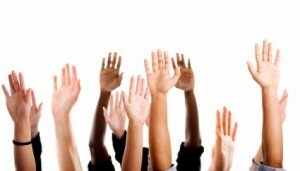 I’m part of the LGBTQ community. Sometimes it isn’t that great; I have less rights than many members of our society, I can be fired just for being queer in many states, and while hate crimes laws exist, it doesn’t prohibit bullying of folks like me, the stares, being yelled at and told I’m sinning, and so on.
I’m part of the LGBTQ community. Sometimes it isn’t that great; I have less rights than many members of our society, I can be fired just for being queer in many states, and while hate crimes laws exist, it doesn’t prohibit bullying of folks like me, the stares, being yelled at and told I’m sinning, and so on.
But even with all that, I’m pretty lucky. I have privilege, even as a member of this oppressed community. I’m white – LGBTQ people of color, particularly women of color, and more so, trans women of color, have it much harder. Multiple identities that are consider minorities or that oppressed in our systems of oppression have a much harder time of it.
On that note, I’m also cisgender; for the most part, the sex that I was assigned at birth matches my gender. I was assigned female, and while I identify as a femme, that is still part of a woman gender. Trans folks, particularly trans women, also fall into communities that are more often refused basic services, like health care, are more often victims/survivors of violence/sexual assault, and in many cases, are not encouraged or even allowed to file reports with authorities because of their gender.
I have a home. My partner and I are both privileged enough to be employed. We don’t make a lot, particularly in comparison to others with our degrees, and we live paycheck to paycheck, but we have a roof over our heads, and a way to get good food, and internet so that we can connect. Queer folks (again, especially POC, PWD and trans folks) are disproportionately under paid, under employed, more likely to be fired for their identities, and are more likely to be without a home.
I am a person with disabilities. People with disabilities also tend to experience multiple oppressions; many places that are available and opened to traditionally able bodied queer folk are not accessible to people with limited mobility, including Centers, health clinics, events, non-profits, and more.
Just because you are LGBTQ does not mean that queer is your only identity, or that all queers experience the same types of systemic oppression. We all have privilege in one way or another, and it is important that we don’t get into victim mode, only recognizing our minority or oppressed identities, but also that we take a look at our privilege and look at how we can support other members of our community that are not getting basic needs met.
Yes, it would be nice if we could all be seen as equal members of society, and certainly, civil unions and same sex marriage will help with that. However, these rights and movements are not the most important for the LGBTQ community. First, we need to work on protecting members of our community from violence, make sure that all LGBTQ members have access to health care (1 in 4 members of the trans community has been DENIED basic health care), that we have programs to support all members of our community, and that we work together towards the system oppression of our society. Being queer is more than just holding hands at rallies and signing letters; it is working together to create change that provides for equality for ALL of our community, not just some.
This article was originally posted Apr 1, 2011

Excellent point.
Are there organizations/charities/activism groups you’d recommend to donate to, or help with, to help LGBTQ folks who are multiply-oppressed to get the help and recognition they need?